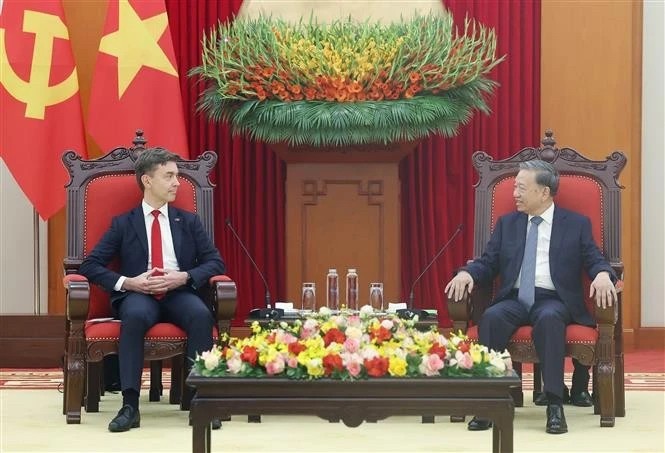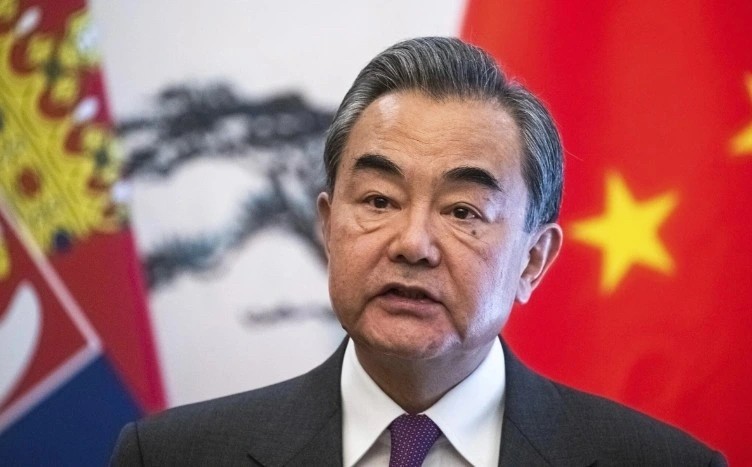Vietnam - EU Free Trade Agreement: Achievements and Challenges - PART 2
Vietnam - EU Free Trade Agreement: Challenges and the Way Forward
| 50 Years of Vietnam-Netherlands Ties Celebrated in Hanoi | |
| Dual Impact of EVFTA On Vietnam's Coffee Exports to EU |
Some challenges in EVFTA implementation
Regarding exports, the greatest challenge lies in the competitive strength of Vietnamese goods in the EU market. The main reasons include:
Requirements on rules of goods origin: Vietnam faces significant difficulties complying with EVFTA’s rules of origin. The domestic content requirement poses numerous challenges, especially for industries dependent on foreign raw materials. For example, Vietnam’s textile industry relies heavily on inputs from China. Additionally, many Vietnamese businesses have yet to adequately explore and prepare for the opportunities presented by the EVFTA. After two years of implementation, only 13% of businesses have actively adjusted their supply chains and production processes to benefit from tariff incentives (15).
Sanitary and phytosanitary (SPS) measures and Technical Barriers to Trade (TBT). The EU is a demanding market with high living standards, requiring imported goods to meet rigorous standards before taking advantage of the EVFTA. The EU’s SPS measures are considered more stringent than the standards recommended by the World Trade Organization (WTO), Codex Alimentarius, and the World Organization for Animal Health (OIE). Most of these standards are set by the European Commission (EC), making EU regulations among the toughest barriers to Vietnamese agricultural exports. Moreover, the EU has continually adjusted and raised its import standards. Over three years of EVFTA implementation, Vietnamese agricultural products have faced increased warnings and inspection frequencies in the EU (16). However, Vietnam’s export rate under the EVFTA’s preferential terms has gradually improved, with 20% in the first year, 25.9% in 2022, and 35% in 2023 (17), marking encouraging progress in Vietnamese product quality.
Supply chain due diligence directive: Vietnamese exporters to the EU face challenges due to the European Council’s adoption of the draft Corporate Sustainability Due Diligence Directive (CS3D) on March 15, 2024, which is currently awaiting a European Parliament vote. The CS3D aims to promote sustainable and responsible business practices across global value chains, requiring companies to identify, prevent, mitigate, or end adverse impacts associated with issues like child labor, forced labor, pollution, and biodiversity loss. To comply with the CS3D, companies must integrate due diligence policies, assess potential impacts, monitor policy effectiveness, and disclose due diligence results. This necessitates substantial investment in resources and costs from companies and adaptation to differing regulations across EU member states.
Brand recognition: Despite growth in export volume and value, branded Vietnamese goods in the EU remain limited, with only around 40 geographical indications from Vietnam being protected in the EU (18). Although Vietnamese products like rice, coffee, and textiles rank among the world’s top exports, they are often imported into the EU under another country’s label or brand, reducing their added value and competitive edge. For instance, most Vietnamese rice exports to the EU lack a distinct brand; even “Phu Quoc Fish Sauce,” protected in the EU, is owned by the Viet Huong Fishsauce Company (US).
Regarding imports, Vietnam also encounters challenges, such as competition from EU goods and services. High-quality EU goods increasingly entering Vietnam’s market have created competitive pressure domestically, as prices become more affordable. Vietnamese consumers tend to prefer EU products for their quality. Additionally, EU companies can easily establish 100%-owned businesses in Vietnam, competing in sectors where Vietnamese companies may lack strength or experience. Vietnamese enterprises, which are primarily small and undercapitalized, struggle to upgrade technology quickly, while EU firms have advanced technologies, abundant capital, and extensive experience. These factors present significant obstacles for Vietnamese businesses.
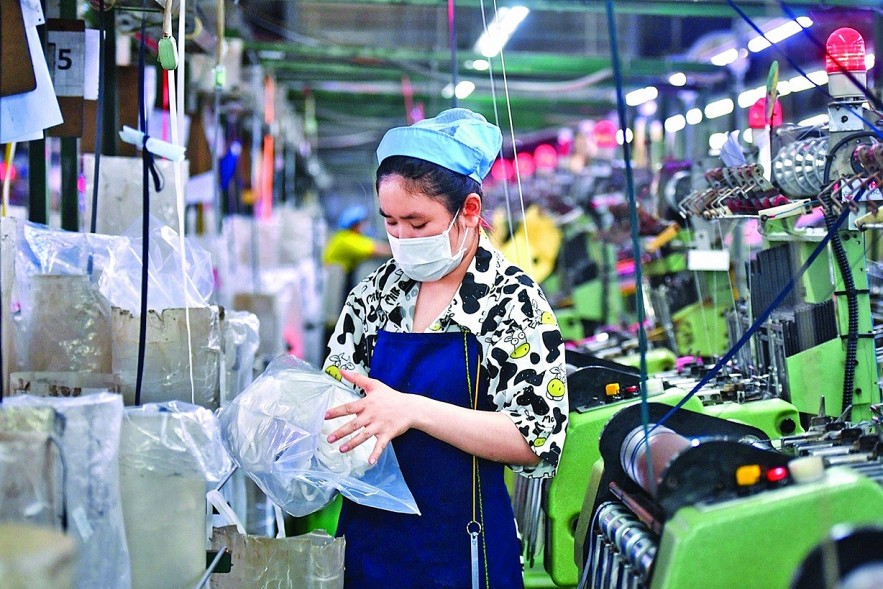 |
| Photo: MOIT |
Solutions to maximize the benefits of EVFTA
To harness EVFTA more effectively, Vietnam should prioritize the following:
For the Government, it is vital to enhance EVFTA awareness and outreach. Currently, only 17% of businesses benefit from tax incentives when exporting and 16% when importing (19), partly due to a lack of EVFTA-related information. To address this, the government should promote awareness of the EVFTA and the EU market through websites, media outlets, and training sessions to enhance understanding of commitments and necessary implementation steps.
Strengthen collaboration with Vietnamese agencies in the EU market: Vietnam’s representatives in the EU have been effective facilitators for connecting domestic and foreign markets, helping businesses understand market criteria and access timelines. However, these agencies should prioritize fostering a favorable business environment and providing accurate information for EU businesses interested in Vietnam. For effective cooperation, these agencies should closely connect with both domestic and international businesses and trade organizations by regularly hosting forums and workshops. These events should serve as platforms to discuss and clarify any questions related to new regulations, policies, market information, and industry trends in Vietnam, helping EU businesses access information quickly and efficiently. Additionally, the government should establish mechanisms for close collaboration with domestic businesses and trade organizations, organizing regular trade meetings and forums to facilitate information exchange and experience sharing.
Develop programs to improve the competitive capabilities of industries and enterprises: These programs should reduce the disparity between foreign-invested and domestic companies in leveraging EVFTA benefits, expanding markets, and increasing export value. Specifically, the government should develop policies to support small and medium-sized enterprises with financing, training, and quality standard consultations. Assistance with market entry and expansion, as well as support for resilient and sustainable business development, should also be prioritized. Additionally, the government must ensure the consistency, transparency, and stability of these policies.
For businesses
Investing in technological and technical improvements by adopting new technologies, and modern production processes; and collaborating with experienced EU partners is essential. For example, in the agricultural sector, companies should invest in adopting quality standards systems like ISO 9000, HACCP, and ISO 14000 to meet EU market requirements. Additionally, they must ensure that their production processes comply with relevant documentation and procedural standards through improved management and employee training on new regulations under the Agreement.
Enhancing product quality is key to competing and gaining deeper access to the EU market; thus, businesses need to: First, adjust raw materials and production processes to comply with origin and local content regulations. Instead of relying on imports, companies should seek local raw materials to optimize their competitive advantage. Second, thoroughly understand the EVFTA’s provisions relevant to their business activities, including understanding the tax reduction schedules and product standards and quality regulations of EU partners. Only by doing so can businesses benefit from the Agreement’s incentives.
Developing and integrating supply chain due diligence policies into regular business operations is a crucial solution to meet the requirements of the CS3D Directive. This requires companies to establish clear procedures and standards to assess and manage any negative impacts on workers' rights and the environment throughout their supply chain. Due diligence policies should be designed not only to meet EU legal requirements but also to align with the company’s specific circumstances and capabilities. Businesses should regularly evaluate and update these policies to ensure compliance with the latest regulations and market requirements.
Building a brand identity for products to enhance competitiveness, protect rights, and maintain reputation in the EU market is essential. First, companies should register product protection in the EU to ensure their products are protected from imitation. It should be noted that in the EU, besides direct trademark registration in each country (effective only within that country), there is also the European Union Trade Mark (EUTM), which provides protection across all 27 EU member states (20). Therefore, companies should select the registration method that aligns with their business strategy.
Second, finding reputable partners and EU market experts is important, as they play a significant role in introducing and effectively promoting the brand. Additionally, they can help businesses find smart and optimized ways to approach the market.
Third, using social media to promote the brand is very important. For example, export businesses can use platforms like Facebook, Instagram, and YouTube to share videos and images of harvesting and processing activities. At the same time, companies should interact with customers by responding to questions, comments, and feedback from consumers. This allows businesses to reach numerous potential customers in the EU directly.
Fourth, in the short term, bringing branded products into the EU may present many challenges. Thus, businesses can produce customized products to flexibly and effectively meet market demands. This enables companies to create tailored products and quickly and flexibly penetrate their target markets.
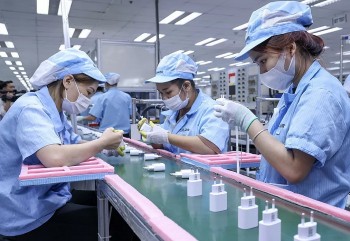 | EVFTA Provides Impetus For Vietnam-Italy Economic Cooperation Vietnam-Italy will focus on implementing the EVFTA with specific action programs, creating an important turning point and new momentum in economic cooperation. |
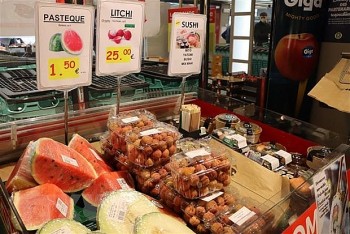 | EVFTA: Successful Four-Year Journey EVFTA has gone through many "headwinds" with Vietnam and the European Union (EU), such as the Covid-19 pandemic and geopolitical changes. |

